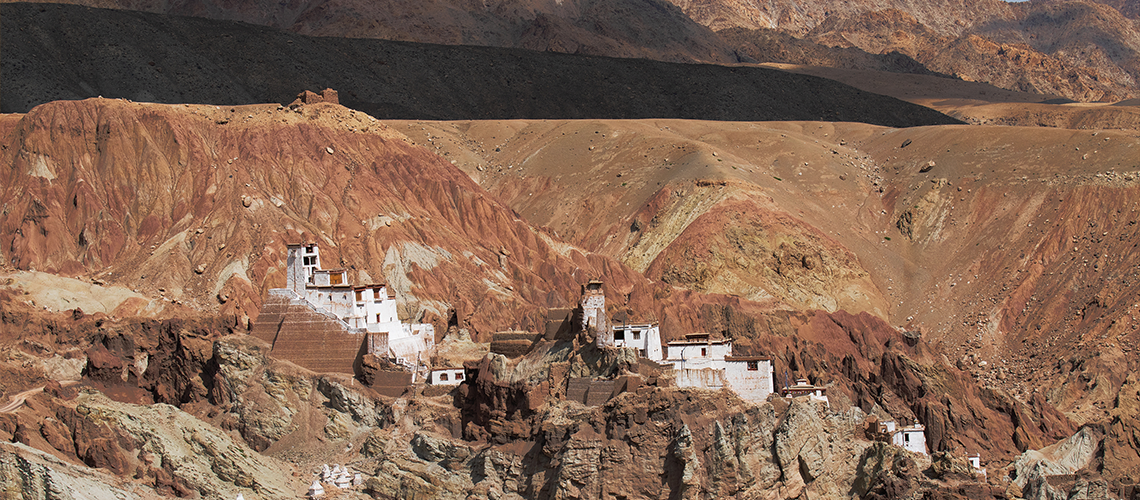Rule of law: tensions high in Jammu and Kashmir as elections approach
Yola VerbruggenThursday 30 March 2023

Tensions have been high in Jammu and Kashmir since the Indian government revoked the state’s special semi-autonomous status in 2019, creating two territories under New Delhi’s control: Jammu and Kashmir, and Ladakh. Laws that previously only applied in India now also apply in the valley, leaving Kashmiris worried that the demography of the region is about to change for good – concerns that have been given new impetus by the local elections expected to take place later in 2023.
Jammu and Kashmir’s first ruler after the partition of British India in 1947 chose for the region to become part of India. Conflict between newly formed Pakistan and India soon erupted over control of the territory and in 1949, after the UN intervened, a line of demarcation was drawn, which still exists today. The special semi-autonomous status of Jammu and Kashmir was written into the Indian constitution, under Article 370. But, says Ather Zia, an associate professor in anthropology and gender studies at the University of Northern Colorado, Article 370 has been gradually eroded. ‘There is a history of client politicians in Kashmir who were collaborative with India. The Article was slowly diluted,’ she says.
Some rules were kept in place: the state had its own chief minister and outsiders were not allowed to settle, buy land, or hold local government jobs. This all changed with Indian Prime Minister Narendra Modi’s decision to abrogate Article 370 in 2019. Now, as India’s laws also apply in Jammu and Kashmir, non-residents can live in the state, own property and apply for government jobs. ‘Article 370 was withdrawn unilaterally, it’s settler colonialism,’ says Zia.
There is a build-up of tensions and it appears that in a few years we will see this period as the interbellum between two periods of intense conflict
Mirza Saaib Bég
Weidenfeld-Hoffmann Scholar, University of Oxford’s Blavatnik School of Government
According to India’s government, the region’s special status inhibited its socio-economic development and integration with India. Modi has claimed that the revocation will bring peace and stability to Jammu and Kashmir, and the abrogation and subsequent legislative changes are part of his government’s campaign promise to ‘integrate’ the state. However, in the aftermath of the abrogation of Article 370, scores of opponents, journalists and human rights defenders have been arrested and imprisoned. The internet was completely shut down in the state for seven months from August 2019 – the longest ever shutdown in a democracy. Thousands more Indian troops have been deployed to the valley.
‘This forcible merger and the undemocratic manner in which it was engineered only reinforces the image of a new India that is hyper-nationalist, authoritarian and undemocratic, where rule of law is disregarded where it suits the government in power,’ says Mirza Saaib Bég, a Kashmiri lawyer and Weidenfeld-Hoffmann scholar at the University of Oxford’s Blavatnik School of Government. ‘In effect, the Indian government supplanted the recommendation required from an elected representative body, regarding the future of millions of people, with the recommendation of a political appointee [the governor of Jammu and Kashmir] who has no representative character and does not represent the will of the people of Kashmir,’ he adds.
The Indian government has also redrawn the political constituencies in the state through a delimitation commission, which increased the number of assembly seats in Hindu-majority Jammu from 37 to 43, while Muslim-majority Kashmir has 47, up only one seat from its previous number. Critics say this is in conflict with the ‘one person, one vote’ principle of equal representation in a democratic election. Government figures welcomed the delimitation commission’s report, however, stating that it will ‘rectify past wrongs and that it would end discrimination and foster political inclusion’.
The Indian government did not respond to Global Insight’s request for comment.
Alka Pradhan is Co-Chair of the IBA Human Rights Committee and Human Rights Counsel at the Guantanamo Bay Military Commissions. She refers to the redistricting as ‘gerrymandering’ – where electoral boundaries are manipulated for the benefit of a particular party or group and notes that this happens in the US, too.
There could be an increase of as many as 2.5 million votes in Kashmir now that all Indians are allowed to settle in the region. This figure is based on the number of people from central India living in Kashmir, and includes military personnel stationed in the region – with the latter accused of a plethora of human rights abuses against the region’s Muslims. In spring 2021 for example, five UN expert mandates wrote to the Indian government asking for information about a number of incidents, including the detention of a Kashmiri politician.
‘The fact that an unelected group of people have so brazenly disregarded even the most peripheral compliance with democratic norms or the peoples’ mandate has entrenched a sense of anger and disenfranchisement,’ says Bég. ‘There is a build-up of tensions and it appears that in a few years we will see this period as the interbellum between two periods of intense conflict.’
Since the abrogation, tensions with Pakistan over the region have flared up and Jammu and Kashmir was again discussed at the UN. Yet, India is seen as a bulwark of democracy in Asia and currently holds the Group of 20 presidency; it has not faced a huge international outcry in respect of these events in Jammu and Kashmir.
Image credit: Basgo or Bazgoo, a village situated on the bank of the Indus river in Leh district, Ladakh, India. mitrarudra/AdobeStock.com
